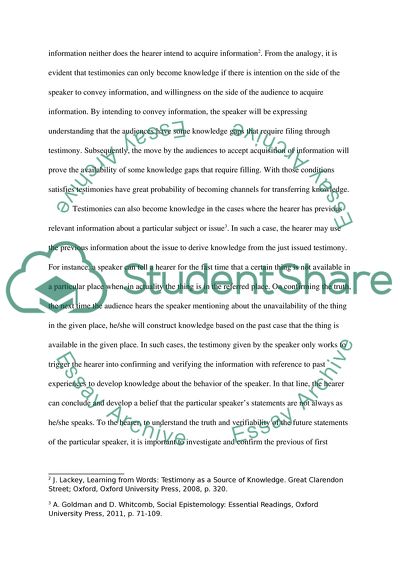Cite this document
(What Does It Take to Acquire Knowledge through Testimony Essay, n.d.)
What Does It Take to Acquire Knowledge through Testimony Essay. https://studentshare.org/philosophy/1874595-what-does-it-take-to-acquire-knowledge-through-testimony
What Does It Take to Acquire Knowledge through Testimony Essay. https://studentshare.org/philosophy/1874595-what-does-it-take-to-acquire-knowledge-through-testimony
(What Does It Take to Acquire Knowledge through Testimony Essay)
What Does It Take to Acquire Knowledge through Testimony Essay. https://studentshare.org/philosophy/1874595-what-does-it-take-to-acquire-knowledge-through-testimony.
What Does It Take to Acquire Knowledge through Testimony Essay. https://studentshare.org/philosophy/1874595-what-does-it-take-to-acquire-knowledge-through-testimony.
“What Does It Take to Acquire Knowledge through Testimony Essay”. https://studentshare.org/philosophy/1874595-what-does-it-take-to-acquire-knowledge-through-testimony.


